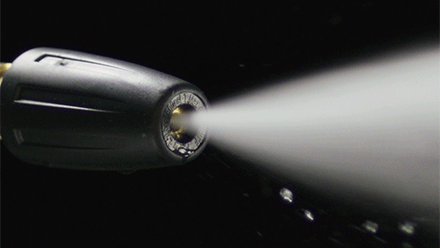Pressure Washing

Pressure Washing
Commercial Buildings or Homes

Uses
Exterior Surfaces
Pressure washing can involve cleaning the exteriors of houses, offices, and commercial buildings.
Driveways and Walkways
Enhance the curb appeal of your property by removing oil stains, tire marks, algae, and debris.
Decks and Patios
Remove dirt, mold, and mildew from decks and patios.
Fences
Pressure washing can help remove dirt, grime, and discoloration from fences, revitalizing their appearance.
Outdoor Furniture
Patio furniture, outdoor playsets, and other outdoor items can benefit from pressure washing to remove dirt and weathering.
Graffiti Removal
Pressure washing can effectively remove graffiti from various surfaces without causing damage.
Advantages
Efficiency
Pressure washing is a highly efficient cleaning method that can save time and effort compared to manual scrubbing. Deep Cleaning
Environmentally Friendly
Pressure washing primarily relies on water and doesn’t require chemical cleaning agents.
Preventative Maintenance
Regular pressure washing can prevent the buildup of mold, mildew, and other contaminants.
Enhanced Curb Appeal
Pressure washing can dramatically improve the appearance of surfaces, making them look newer and well-maintained.
Health and Safety
Removing mold, mildew, and slippery substances from surfaces can improve safety by reducing the risk of slips and falls.
Light Pressure
We Use a Pressure Washer With Care, Preventing Damage
Commercial Power Washing Services
Buildings
- Cleaning facades of office buildings, warehouses, and other commercial structures.
- Removing graffiti from walls.
Parking Lots & Garages
- Removing oil stains, tire marks, and general grime.
- Cleaning parking stripes and other markings.
Sidewalks & Walkways
- Cleaning gum, spills, and dirt from pedestrian areas.
- Maintaining a clean appearance for storefronts.
Read More
Outdoor Eating Areas:
Cleaning patios, decks, and outdoor seating areas of restaurants and cafes.
Fleet Washing:
Cleaning company vehicles, including trucks, vans, and buses.
Heavy Equipment Cleaning:
Removing dirt, mud, and grease from construction equipment, tractors, and other machinery.
Gas Stations:
Cleaning fuel and oil spills from pump areas.
Maintaining clean and safe surfaces for customers.
Stadiums and Arenas:
Cleaning seating areas, walkways, and restrooms.
Removing spills and stains after events.
Public Transportation Platforms:
Cleaning train, bus, and subway platforms for safety and aesthetics.
Shopping Carts:
Regularly cleaning and sanitizing shopping carts for retail stores.
Cooling Towers:
Removing algae, mold, and mineral deposits to ensure efficient operation.
Trash Bin and Dumpster Areas:
Cleaning and sanitizing areas to reduce odors and pests.
Roofs:
Removing algae, mold, and dirt to extend the life of commercial roofing.
Signage and Billboards:
Cleaning signs to maintain visibility and a professional appearance.
Swimming Pools:
Cleaning pool decks, tiles, and surrounding areas in commercial pools.
Loading Docks:
Removing grime, spills, and residues to maintain a safe working environment.
Airports:
Cleaning runways, taxiways, and aprons to remove rubber deposits and other contaminants.
Storage Tanks:
Cleaning the exterior of tanks in industries like oil and gas, water treatment, and chemicals.
Marinas and Docks:
Removing algae, barnacles, and other marine growth from docks and piers.
Residential Power Washing Services
Home Exteriors:
Cleaning dirt, mold, and mildew from siding, brick, stucco, and other exterior surfaces.Driveways and Walkways:
Removing oil stains, tire marks, and general grime to enhance curb appeal.Decks and Patios:
Cleaning and preparing surfaces for staining or sealing, removing algae, and mildew.Read More
Fences:
Cleaning wood, vinyl, and metal fences to restore their appearance.
Roofs:
Removing algae, moss, and dark streaks to extend the life of roofing materials.
Gutters:
Cleaning out leaves, debris, and dirt, as well as washing the exterior of gutters.
Pool Decks:
Cleaning and removing slippery algae and chemical residues.
Garage Floors:
Removing oil stains, paint spills, and rubber marks.
Outdoor Furniture:
Cleaning grime, bird droppings, and weather stains from chairs, tables, and lounges.
Windows:
Using low pressure to clean windows without causing damage.
Play Equipment:
Cleaning dirt, mold, and mildew from swings, slides, and playhouses.
Gazebos and Pergolas:
Removing weather stains, bird droppings, and algae.
Garden Statues and Decorative Pieces:
Gently cleaning to restore the appearance without causing damage.
Power Washing Older or Historical Masonry
Identify What is to Be Removed
Consider the Historic Appearance of the Building
Consider the Practicalities of Cleaning or Paint Removal
Study the Masonry
Assessment and Planning
- Condition Assessment: Evaluate the condition of the masonry. Look for signs of damage, such as spalling, cracking, or loose mortar. Identify areas that are particularly fragile.
- Material Identification: Determine the type of brick or stone and the mortar used. Historic bricks and stones often have different properties than modern materials, and some types of stone are more porous and susceptible to damage.
- Historical Significance: Understand the historical and architectural significance of the masonry. Consult with preservation specialists if necessary to ensure the cleaning methods align with preservation goals.
Selecting the Right Equipment and Materials
- Pressure Washer: Choose a pressure washer that allows control over the water pressure. For historic masonry, a low-pressure setting (generally between 100-400 psi) is recommended to avoid damaging the material.
- Nozzle Type: Use a wide-fan nozzle (usually 25 to 40 degrees) to distribute the pressure evenly and reduce the risk of focused, high-pressure damage.
- Water Temperature: Cold water is usually sufficient. Hot water can be used for stubborn stains, but it must be carefully controlled to avoid thermal shock to the masonry.
- Cleaning Agents: If necessary, select mild, non-ionic detergents specifically formulated for masonry cleaning. Avoid acidic or highly alkaline cleaners, which can damage the masonry or mortar.
Preparation
- Surface Protection: Protect surrounding areas and features that should not be cleaned or could be damaged by water or cleaning agents. Use plastic sheeting, tape, and other barriers.
- Pre-wetting: Thoroughly pre-wet the masonry with clean water. This helps to prevent the cleaning agents from being absorbed too deeply into the porous material and facilitates the removal of dirt and biological growth.
Test Cleaning
- Test Patch: Perform a test cleaning on a small, inconspicuous area. This allows assessment of the effectiveness of the cleaning method and ensures no damage will occur to the masonry.
Cleaning Process
- Controlled Pressure Washing:
– Start cleaning from the top and work downwards to prevent streaking.
– Maintain the nozzle at a consistent distance (usually 12-18 inches) from the surface.
– Move the nozzle in a consistent, overlapping pattern to ensure even cleaning.
– Regularly monitor the cleaned areas for signs of damage or excessive erosion. - Use of Cleaning Agents:
– If using a detergent, apply it gently with a soft brush or low-pressure sprayer.
– Allow the detergent to dwell according to the manufacturer’s instructions but do not let it dry on the surface.
– Rinse thoroughly with clean water to remove all residues.
Post Cleaning
- Inspection: Carefully inspect the cleaned masonry for any signs of damage. Note areas that may need additional attention or repair.
- Repointing and Repairs: If any mortar has been dislodged or if cracks have been exacerbated, repointing with a compatible mortar (matching the original in composition, color, and texture) may be necessary.
- Drying: Allow the masonry to dry completely. This process can take several days, depending on the weather and the porosity of the materials.
Maintenance and Preservation
- Preventive Measures: Consider applying a breathable water-repellent sealer to protect the masonry from future water penetration while allowing moisture to escape.
- Regular Maintenance: Establish a regular maintenance schedule to inspect and clean the masonry periodically. This helps prevent the buildup of dirt and biological growth, reducing the need for aggressive cleaning methods in the future.
Special Conditions
- Environmental Concerns: Ensure that wastewater and any cleaning agents are properly contained and disposed of according to local environmental regulations.
- Consulting Experts: For particularly valuable or delicate historic masonry, consult with conservation professionals or preservation architects to develop a tailored cleaning plan.
Masonry Cleaning
Checklist for Pressure Washing Historical Buildings
Low Pressure
PSI above 1200 is likely to permanently scar or etch historic masonry.
Weather Conditions
Avoid pressure washing historic buildings between November and March when freezing temperatures can cause cracking.
Methods
Low pressure washing is the preferred method for cleaning. Sandblasting should never be used on older masonry.
Testing
Conducting a sample test of a proposed cleaning method in an inconspicuous location on the building is strongly encouraged.
Why Should You Choose the Washington State Masonry Company for your Next Power Washing Project?
Choosing the Washington State Masonry Company for your next power washing project is a decision grounded in numerous compelling reasons. This company brings a wealth of experience, a commitment to quality, and a dedication to preserving the integrity of your masonry surfaces. Here’s why you should trust them with your power washing needs:
Why Should You Choose the Washington State Masonry Company for your Next Power Washing Project?
Choosing the Washington State Masonry Company for your next power washing project is a decision grounded in numerous compelling reasons. This company brings a wealth of experience, a commitment to quality, and a dedication to preserving the integrity of your masonry surfaces. Here’s why you should trust them with your power washing needs:Expertise and Experience
The Washington State Masonry Company boasts a team of highly skilled professionals with extensive experience in handling various types of masonry surfaces, including historic brick and stone. Their expertise ensures that each project is approached with a deep understanding of the material properties, potential vulnerabilities, and appropriate cleaning techniques. This level of knowledge is crucial in avoiding damage during the power washing process, especially for delicate and historically significant masonry.
State-of-the-Art Equipment
Using the latest in power washing technology, the Washington State Masonry Company ensures that all cleaning tasks are performed efficiently and effectively. They utilize pressure washers with adjustable settings, allowing them to tailor the pressure to the specific needs of your masonry. This customization is key in preventing damage that can occur from using too high a pressure on fragile surfaces. Additionally, they employ a variety of nozzles and attachments to ensure even cleaning and to reach all areas of the structure.
Environmentally Friendly Practices
The Washington State Masonry Company is committed to environmentally responsible practices. They use eco-friendly cleaning agents that are effective in removing dirt, grime, and biological growth without harming the environment or the masonry itself. Their approach includes proper wastewater management, ensuring that runoff is contained and disposed of in accordance with local environmental regulations. This commitment to green practices is an added benefit for clients who are environmentally conscious.
Attention to Detail
A hallmark of the Washington State Masonry Company is their meticulous attention to detail. Before starting any project, they conduct a thorough assessment of the masonry’s condition. This includes identifying any pre-existing damage, assessing the type of materials, and understanding the historical significance of the structure. Such comprehensive evaluation allows them to develop a customized cleaning plan that addresses the specific needs of your masonry.
Safety First
Safety is a top priority for the Washington State Masonry Company. Their team is trained in the latest safety protocols to protect both the workers and the property. They use protective measures to safeguard surrounding areas and structures from overspray and potential water damage. This focus on safety ensures that the power washing process is carried out smoothly and without incident.
Reputation and Reliability
Over the years, the Washington State Masonry Company has built a solid reputation for reliability and excellence. Their portfolio includes numerous successful projects across the state, with many satisfied clients attesting to their professionalism and quality of work. This track record of success provides peace of mind to new clients, knowing they are hiring a company that consistently delivers outstanding results.
Comprehensive Services
Beyond power washing, the Washington State Masonry Company offers a range of masonry services, including repairs, repointing, and restoration. This comprehensive service offering means that any issues uncovered during the power washing process, such as damaged mortar or bricks, can be addressed promptly and effectively. This integrated approach ensures that your masonry is not only clean but also structurally sound and aesthetically pleasing.
Preservation of Historical Integrity
For historic buildings, preserving the integrity and appearance of the masonry is paramount. The Washington State Masonry Company understands the importance of maintaining the historical value of these structures. Their methods are designed to clean the masonry gently yet thoroughly, ensuring that the original character and charm of the building are preserved.
In conclusion, choosing the Washington State Masonry Company for your next power washing project means opting for a blend of expertise, advanced technology, environmental responsibility, and a commitment to quality. Their attention to detail, focus on safety, and comprehensive service offering make them the ideal choice for ensuring your masonry surfaces are expertly cleaned and maintained.
FAQs
Q: Is Pressure washing safe for masonry surfaces?
A: Yes, pressure washing can be safe for masonry surfaces when done correctly. Using the right equipment, appropriate pressure levels, and proper techniques helps avoid damage.
Q: What pressure should I use for pressure washing masonry?
A: It’s recommended to use low to medium pressure, typically around 1000 to 1500 PSI, for pressure washing masonry surfaces. High pressure can damage the masonry.
Q: Can I use detergent or cleaning agents while pressure washing?
A: Yes, using a mild detergent or a cleaning solution specifically formulated for masonry can help remove dirt and stains. However, choose a product compatible with your surface and rinse thoroughly.
Q: Are there any risks associated with pressure washing
A: Yes, if not done correctly, pressure washing can cause surface damage, strip paint or coatings, force water into porous materials, or erode mortar joints. Careful execution is crucial.
Q: Can pressure washing remove efflorescence?
A: In some cases, pressure washing can help remove efflorescence (white salt deposits) from masonry surfaces. However, identifying and addressing the underlying cause is important to prevent recurrence.
Shop Masonry Services
Fireplaces
Materials
Chimneys

Walls
Cleaning

The Washington State
Masonry Company
License No. BRICKBD809Q4
Same day or same week estimates and completions
5 year warranty on all workmanship
Based out of Federal Way, WA
Call Us At: 206-437-6582



